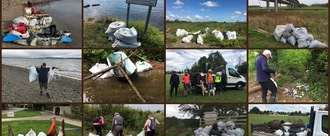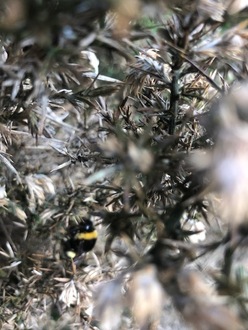- Featured
- Animal Rights
- Anti-racism
- Arts & Culture
- Children
- Climate
- Corporate accountability
- Crime
- Disability rights
- Economic
- Education
- Environment
- Food and Sustainable Production
- Gender Equality
- Governance and Transparency
- Health
- Housing
- LGBT Rights
- Mental health
- Northern Ireland
- Planning
- Privacy and Data Protection
- Rural Inequality
- Social Justice
- Trade
- Transport and Infrastructure
- Workers' Rights
- More
-
Protection for People Fleeing AfghanistanPeople in Afghanistan have been subjected to decades of occupation and violence. The unfolding crisis puts many people in danger and in need of rapid and co-ordinated protection. We call for supports for human rights activists, journalists, women (including those working in education), members of minority groups, Afghan people who supported and worked with NGOs on behalf of the Irish people and the Irish government Afghanistan, and all in need of protection, as a matter of urgency. People in Ireland refuse to look away from the refugee and humanitarian catastrophe unfolding in Afghanistan. We welcome the announcement on the 16th August that the Irish government will resettle up to 150 people, but we can and must do more. We call on Minister Coveney, Minister Humphreys, and the Taoiseach, Micheál Martin to: - Urge and work with the international community to create safe routes to safe havens for those fleeing from Afghanistan, including to Ireland. - Provide as many additional places as possible for people and help them evacuate swiftly and safely from Afghanistan to seek International Protection in Ireland. - Issue emergency Temporary Travel documents to vulnerable Afghans who don’t have or cannot access passports, to facilitate their evacuation. - Halt and reverse any deportations or forced returns of people from Ireland to Afghanistan. - Grant refugee status to those currently in Direct Provision after fleeing persecution in Afghanistan, immediately. - Facilitate family reunification as a matter of urgency. - Ensure that student and protection visas are issued or renewed swiftly. We seek these urgent actions to provide protection for vulnerable people seeking safety from Afghanistan in addition to the ongoing calls to provide safe passage and protection for families and individuals currently stranded in appalling conditions in Greece and elsewhere. Solidarity is our strength.811 of 1,000 SignaturesCreated by Galway One World Centre
-
Stop U.S. Military use of Shannon AirportThe erosion of Irish neutrality is inextricably linked to the daily use of Shannon Airport by the U.S. military for over two decades. It is effectively a forward operating base used to support their operations in the Middle East, including their ongoing support for Israel. Over three million US troops and their weapons as well as regular U.S. Air Force/Navy planes have passed through since 2002. Two Articles of the Irish Constitution have been repeatedly and consistently undermined through this misuse of a civilian airport. Article 28.3.1 says war shall not be declared and the State shall not participate in any war save with the assent of Dáil Éireann. Article 29 affirms the State’s devotion to the ideal of peace and friendly co-operation amongst nations founded on international justice and morality, and its adherence to the principles of the peaceful settlement of international disputes by international arbitration or judicial determination. Despite this, Shannon has provided direct support for ground offensives and bombing campaigns, and has been complicit in the deaths and displacement of millions of people. The U.S. Military use of Shannon Airport and Irish airspace also costs the Irish state in excess of €4 million euro a year. This is as a result of air traffic subsidies to the U.S. military, Garda policing arrangements at the airport, the use of the Defence Forces to provide additional security for the transiting warplanes. More info: https://shannonwatch.org. We demand an end to the U.S. Military use of Shannon Airport.4,755 of 5,000 SignaturesCreated by Shannonwatch .
-
Make lifesaving changes to the Irish Mental Health SystemPlease sign this petition if you believe the lifesaving changes, that the HSE themselves have summarized (listed above) after an inquest into their care of Maxine Maguire prior to her death, should be made in the Irish Mental Health System. It's difficult to accept and hard to believe they aren't already a standard in our mental health system. We owe it to ourselves and our loved ones to demand better. Adequate mental healthcare is becoming even more essential now as we struggle through a global pandemic. As Patrick Freyne from the Irish Times put it - "IRELAND’S MENTAL HEALTH SYSTEM IS NOT PREPARED FOR A CRISIS – BECAUSE IT WAS IN ONE BEFORE WE EVER HEARD OF CORONAVIRUS". This needs to change. We all suffer at one point or another with poor mental health and most of us are lucky to not have to rely on the Irish Mental Health services for the help we need to get better, however a large percentage of people in Ireland suffering from longer-term mental health crises and illnesses such as anxiety, bipolar disorder, schizophrenia and depression, among more, DO require better care and accountability from the HSE to manage their illness and in a lot of cases, survive. Don't you want to fully trust that the health system you rely on can take care of you or your loved ones in a mental health crisis? Or provide you with care if you are diagnosed with a mental illness? We trust them to do their very best to keep us alive when we have a physical health emergency, so why can't we trust them to handle us with the same care when it comes to ours and our loved one's mental health? Maxine would still be alive today if it weren't for the proven negligence that the HSE has shown. A HSE inquest into her death found that in the lead-up to Maxine's death, over a 10 week period, she experienced... 1. A delayed referral to mental health services 2. The HSE's lack of awareness of the severity of Maxine's psychotic symptoms and her relationship to suicide risk (After reaching out for urgent help regarding her state of mind, Maxine was turned away from her local mental health service without help, and sent to A&E) 3. A prolonged period in Accident & Emergency. Maxine had to wait 13 hours in an extremely vulnerable state at A&E until there was a psychiatrist available to see her. She was subsequently sent home (the hospital could not locate her 'file') and took an overdose 2 days later. 4. The HSE's apparent lack of awareness of Maxine's prior health history starting from 2012. 5. Lack of communication. Multi-hospital care scenarios were not possible as Maxine's medical files were not on a computer system accessible to all relevant medical professionals. 6. The early and negligible discharge from hospital after an organ transplant due to suicide attempt, and lack of follow-up arrangements regarding her mental state. As per the coroner's recommendations, a psychiatric consultant should have a face-to-face review with a patient before the decision to discharge is made. This was not done in Maxine's case. Every negligible action by the HSE led to another, which led to further harm and eventual loss of our dear Maxine's life. None of us want to see a daughter, son, sister, brother, parent, aunt, uncle, cousin, friend or ourselves get faced with any of these less-than-adequate responses when we reach out for help. Please sign this petition so that we can get the HSE's own recommended changes, implemented and save lives. https://www.irishmirror.ie/news/irish-news/heartbroken-kildare-mam-kathy-maguire-12460058 https://www.kildarenow.com/news/home/484963/mum-hopes-death-of-daughter-will-help-save-lives-of-others.html https://www.irishmirror.ie/news/irish-news/health-news/distraught-mum-says-delayed-mental-20963679 https://www.dublinlive.ie/news/dublin-news/heartbroken-mum-kathy-maguire-who-16997034 https://www.thesun.ie/news/4039056/maxine-maguire-family-mental-health-changes/44 of 100 SignaturesCreated by Kathy Maguire
-
Set up a Special Committee to legislate for Voluntary Assisted Dying for Ireland.Terminally ill and people with incurable progressive conditions in Ireland who want a Medically Assisted Death have no option but to face intolerable, prolonged suffering. Others curtail their lives earlier than they would like so they are able to travel to Switzerland for an assisted death. Anyone who helps someone risks a prison sentence of up to 14 years. Vicky Phelan and many like Vicky want to be able to die here in Ireland, at a time of their choosing surrounded by loved ones. They alone must be allowed to choose when they have had enough. Knowing legislation with a framework of robust safeguards is in place will mean an Assisted Death is safely and legally available. Legislation for this compassionate end of life option gives immeasurable peace of mind to dying people who want this and improves the quality of what life remains to them. All we ask is that everyone respects personal autonomy and the specific wishes of a dying person, someone who wants this option and supports this campaign. #TogetherforChoice Follow us on: https://twitter.com/EndOfLifeIE https://www.facebook.com/EndOfLifeIreland https://www.endoflifeireland.ie/624 of 800 SignaturesCreated by End of Life Ireland

-
Stand with Fiona O'Leary against unjust charges.On Tuesday 20th July Fiona O’leary was arrested by the Gardai at Clonakility Garda station, West Cork. She is facing potential charges of Harassment, Incitement to Hatred and Criminal Trespass. The Gardai chose to arrest Fiona under the charge of Harassment in order to secure the power to detain her for up to six hours. Fiona is a mother to five children. She is a carer, three of her children are Autistic and Fiona is Autistic herself. The gardai were aware of this, yet they treated her inhumanely. In soaring temperatures of 30 degrees she was kept in an interrogation room with no ventilation for five hours, Surly this is in breach of Covid 19 regulation. She was interrogated beyond what could be considered reasonable, accused of hating religion and asked for proof of Holocaust denial. She was forced to sit without moving, surrounded by cameras. Finally they forced her to give her DNA without reason and to which she did not consent. Then she was warned to not get into any more trouble as they did not want to be arresting her again. It was a traumatic experience after which she is suffering PTSD and is finding it very hard to cope with. Fiona and her solicitor have made complaints to GSOC, The Policing Authority and to the Garda Commissioner. We believe there are sinister elements and conflict of interest involved in this case. Fiona is and always has been open and public with all her work in relation to the SSPX Resistance. This level of interrogation and threat of criminal charges was and is unnecessary and punitive. The proposed charges arise due to complaints made by members of the SSPX cult who have a base in West Cork. In August 2020 Fiona broke the story “SSPX Resistance Cult operating out of a farmhouse in West Cork” which she published through her WordPress Blog. The story was subsequently picked up by Local and National newspapers such as The Southern Star, Sunday World. Link to Fionas article: https://fionaolearyblog.wordpress.com/2020/08/14/sspx-resistance-cult-operating-out-of-a-farmhouse-in-west-cork/?fbclid=IwAR07QekNAv1-wRilpExOIfTgSPAVdhJ92GuueyMKtNg43wVRpeOyGVdIfe8 Southern Star: https://www.southernstar.ie/news/covid-denying-catholic-resistance-group-has-a-base-in-reenascreena-4210322?fbclid=IwAR0vuoNziCFuz-sKmEqXJ2KI8y_RdInSyVM26RSnBJdxpM624eRt2M8S3tQ Sunday World: https://www.sundayworld.com/news/irish-news/covid-is-creation-of-the-jews-bishops-sick-claim-39566519.html?fbclid=IwAR2pBvq0drVkq4AK_20xpEBDzStENqlfcyn094v4XMhlcfV8FPpaNDxz7qQ https://www.sundayworld.com/crime/irish-crime/gardai-carrying-out-enquiries-into-anti-semitic-video-recorded-by-convicted-holocaust-denier-bishop-richard-williamson-39629424.html?fbclid=IwAR0vuoNziCFuz-sKmEqXJ2KI8y_RdInSyVM26RSnBJdxpM624eRt2M8S3tQ A quote from the Sunday World article dated October 15th 2020 gives a good insight into why Fiona was so concerned and why the story of the presence of the SSPX Resistance needed to be told to protect the community. “In a statement to SundayWorld.com, gardai have now confirmed the video is the subject of garda enquiries. A spokesperson said: “gardaí are aware of the matter and enquiries are ongoing.” During the half-hour recording, posted on the internet in March, Richardson, a founding member of 'SSPX Resistance', sickeningly claimed: Jewish people are manipulating stock market crashes in a bid to start World War III; Jewish people are 'master-servants' of the devil; People at the top of the Jewish race are in direct contact with Satan and 'he may even appear to them'; Covid-19 "is possibly the creation of the Jews" and "that it was designed with this purpose to bring society to a grinding halt"; And, finally, Jewish people and the Freemasons are "enemies of God" who "hate life, they hate man, they hate God and they are true children of Satan." Williamson's Cork talk targeting the Jewish community is not the first occasion on which he has engaged in anti-semiticism.” These are the words spoken at a gathering in Cork by the leader of the SSPX Resistance to his congregation, yet it is Fiona O’Leary and not Williamson who is facing possible criminal charges by the Gardai. The SSPX Resistance based in West Cork also broke lock-down laws, organising and attending an "exorcism" at the Dail. They refuse to wear masks or follow any of the public health guidelines to protect the community. https://www.irishexaminer.com/news/arid-40231067.html Even though it was reported to the gardai, they took no action. There has been substantial coverage in the press of Fionas arrest: The Irish Times: https://www.irishtimes.com/news/crime-and-law/woman-to-be-arrested-over-allegations-from-ultra-conservative-religious-group-1.4622651 https://www.irishtimes.com/news/crime-and-law/cork-activist-questioned-over-allegations-of-harassment-by-christian-fundamentalists-1.4629871 The Irish Examiner: https://www.irishexaminer.com/news/arid-40344509.html Every thing Fiona works toward is for the protection of the people and the public who are targeted by far right hatemongers, Covid deniers and charlatans who prey on the vulnerable. I ask you all to support this petition and campaign to see Fiona free from this unjust and unwarranted attempt to silence her good work.21 of 100 SignaturesCreated by Tim O'Leary
-
Clean up the Broadmeadow Estuary, Co Dublin - and keep it clean.For some years now, Fingal Council has shown very little interest in keeping a clean environment around the Broadmeadow Estuary catchment area. Volunteers in "Swords Pickers" were able to remove truck loads of dumped rubbish from Ward River Valley Park and Broadmeadow Estuary in the first half of 2021 alone. If something is not done to fundamentally correct this, plastic & other waste will continue to travel from the parkland in Swords, through the Estuary and out into the Irish Sea. Development of either the full size all-weather playing pitch and/or the Broadmeadow Greenway in 2021 will obviously add to the problem by multiplying volumes of human traffic.179 of 200 SignaturesCreated by John Drinane
-
Affordable School Uniforms for AllMany parents and families in Northern Ireland are coming under unbearable financial pressure due to the arbitrary and expensive school uniform requirements. In addition to a school uniform, many schools also insist on bespoke, branded sportswear for PE lessons, particular emblems, or have contracts for branded items with specific uniform suppliers. The recent temporary 20% uplift in the school uniform grant is not enough. Many parents and children are put under stress and pushed into debt trying to meet these unnecessary costs. England and Wales have brought in legislation that ensures schools uniform requirements are affordable. The same is needed in Northern Ireland. https://www.bbc.co.uk/news/uk-northern-ireland-57733760299 of 300 Signatures
-
Ban the use of toxic weed killer GlyphosateGlyphosate the main ingredient in Roundup is poisonous to humans, wildlife and the environment. Studies recently found that this toxic weedkiller is in most people's bodies [1]. It is being sprayed on roadsides, paths, in housing estates close to where people live. Ireland has the second highest levels of glyphosate in surface water in the EU whilst other countries are banning it. In 2015 the World Health Organisation concluded that the pesticide was 'probably carcinogenic to humans' and again, [2] Despite this many local councils still use it and it is still being sold on shop shelves as Round Up. The EU re-approved the use of glyphosate in 2017 however, in the last few years it has been banned by countries including France, Germany, Sri Lanka, El Salvador, the Netherlands, Argentina, Columbia, Peru and Mexico. The EU licence renewal was due to happen this July 2022 but it's been pushed down the road again until July 2023. Big lobby’s already swooping in to convince politicians to vote to continue its use, ignoring the devastating effect it has on our biodiversity, water and our health.[3] Sign the petition to join the campaign so we can ban Glyphosate once and for all. Notes: [1] https://www.irishtimes.com/health/2022/07/09/disturbing-weedkiller-ingredient-tied-to-cancer-found-in-80-of-us-urine-samples/ [2] https://www.scientificamerican.com/article/widely-used-herbicide-linked-to-cancer/ [3] Page 83 http://onlinelibrary.wiley.com/doi/10.2903/j.efsa.2015.4302/epdf6,188 of 7,000 Signatures
-
Dedicated cycle lanes for dedicated cyclistsNeed to encourage more cycling and to improve and keep our present cyclists safe.6 of 100 SignaturesCreated by Fionnuala Lynch
-
Save our Post Office in KinvaraSeven months ago, our much loved postmistress, gave notice that she was to retire. An Post responded by putting a poster in the window looking for interested parties to take over the service. They did not advertise this in local or national press. Now, to our dismay, we have been informed that the post office will be closing on the 14th August 2021 . The Post Office service in Kinvara has been a hugely important hub of activity for many years and it continues to be a busy service. Kinvara Post Office is a core enterprise in this rural community and is responsible for the provision of vital financial services to the most vulnerable service users in our area. There is a agreement between An Post and the government that An Post must ensure that people continue to have access to financial services and are not financially excluded. One worrying result of this will be that our most vulnerable; older service users and those with physical or intellectual challenges, will now have to travel to Kilcolgan (8 km) or Gort (14.5 km) to draw their cash payments. There is also a serious lack of public transport in the area and people without cars are at a distinct disadvantage. Kinvara is a growing village and has many small businesses who both directly and indirectly benefit from the presence of our post office and the removal of this vital service will undoubtedly have a detrimental effect on these businesses. We call on An Post and Minister Eamon Ryan to reissue the call for a postmaster in Kinvara and this time advertise it so that relevant interested parties can see it.1,568 of 2,000 SignaturesCreated by Maeve Kelly
-
Comhlámh le Naíscoil na Seolta/In solidarity with Naíscoil na SeoltaIn Northern Ireland, no matter who we are, our everyday speech is littered with Gaelic and Scots words. Many of the names of our towns and cities are derived from Irish, and it was historically spoken by many Protestant people across Ulster. It's wrong that a vile social media campaign has led this importance educational resource to move premises. Shared spaces where we learn from each other are vital for our peace-building and our quality of life. We offer our support and respect and stand firmly with all those involved in Naíscoil na Seolta.1,438 of 2,000 SignaturesCreated by Nicola Browne
-
Fix The Motor Tax Website so That It Works With Chrome BrowsersIt is an offence to drive without your car being taxed but its proving practically impossible to pay for renewal of motor tax via motortax.ie86 of 100 SignaturesCreated by Siobhan O'Donoghue








.jpg)


